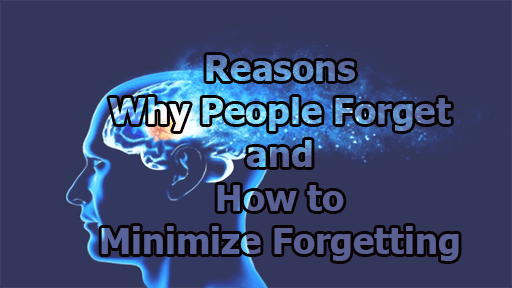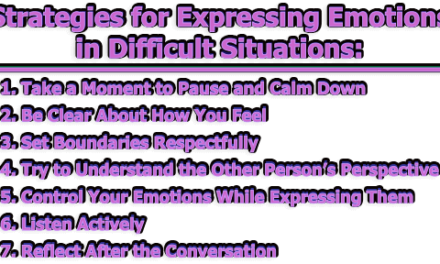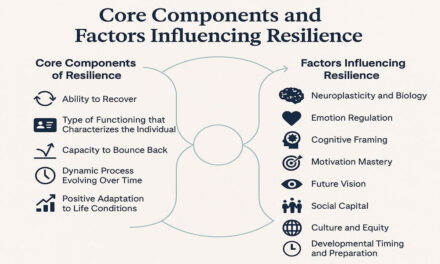Reasons Why People Forget and How to Minimize Forgetting:
Forgetting is a natural part of human cognition, yet it often leads to frustration, particularly when it interferes with learning, productivity, or daily functioning. To understand forgetting and how to combat it, we must explore its causes through the lens of neuroscience and psychology. This article delves into the scientific reasons why people forget and how to minimize forgetting.
Understanding Forgetting (Definitions and Theories):
Forgetting refers to the loss or alteration of information stored in memory, rendering it inaccessible or unavailable at a given time. Several prominent theories explain why forgetting occurs, each offering insights into different mechanisms:
a. Decay Theory: This theory posits that memories fade over time due to the weakening of neural connections if they are not actively reinforced. Hermann Ebbinghaus’s seminal work on the forgetting curve illustrates this phenomenon, showing a steep decline in memory retention shortly after learning, which then plateaus. According to this theory, the passage of time is the primary culprit, although it does not explain why some memories endure for years while others are quickly forgotten (Ebbinghaus, 1885).
b. Interference Theory: Forgetting occurs when new or old information disrupts the retrieval of target memories. Two forms of interference are commonly studied:
- Proactive interference: When old memories hinder the retention of new information. For example, an older password may interfere with remembering a newly set one.
- Retroactive interference: When new information overwrites previously learned material. An example is struggling to recall an old address after moving to a new one (Underwood, 1957).
c. Retrieval Failure: Sometimes, information is stored in memory but cannot be accessed due to insufficient retrieval cues or mental states such as stress or fatigue. Retrieval failure is often temporary and can be resolved with proper cues or changes in context (Tulving & Pearlstone, 1966).
d. Motivated Forgetting: This theory suggests that people intentionally or subconsciously forget distressing or irrelevant memories, often as a psychological defense mechanism. Sigmund Freud referred to this as repression, while modern research describes it as motivated suppression (Anderson & Green, 2001).
e. Encoding Failure: Information that is not adequately processed or attended to during encoding is unlikely to be stored in long-term memory. Craik and Lockhart’s levels of processing framework highlights the importance of deep processing—such as semantic encoding—for durable memory formation (Craik & Lockhart, 1972).
Neurological Basis of Forgetting:
Forgetting involves complex interactions between various brain regions and neurotransmitter systems. Understanding these mechanisms sheds light on how memory functions and why it sometimes falters.
i. Hippocampus: The hippocampus is essential for consolidating new memories and transferring them to long-term storage. Damage to the hippocampus, as seen in conditions like Alzheimer’s disease or traumatic brain injury, can severely impair memory formation and retrieval (Squire, 1992).
ii. Prefrontal Cortex: This region is responsible for working memory and executive functions, including attention, planning, and decision-making. Impairments in the prefrontal cortex, often associated with aging or mental health conditions, can hinder memory encoding and retrieval (Miller & Cohen, 2001).
iii. Amygdala: Emotional memories are often stronger due to the amygdala’s role in attaching emotional significance to events. However, excessive stress or trauma can impair memory retrieval or lead to fragmented recollections (McGaugh, 2004).
iv. Neurotransmitters: Chemicals like acetylcholine, dopamine, and glutamate are vital for memory processes. For instance, acetylcholine is critical for attention and memory, and its decline is linked to cognitive disorders such as Alzheimer’s disease (Mesulam, 2004).
v. Neuroplasticity: The brain’s ability to adapt and reorganize itself—known as neuroplasticity—is fundamental for memory retention and learning. Reduced plasticity, often due to aging or lack of mental stimulation, can contribute to forgetting.
Reasons Why People Forget:
Forgetting arises from a combination of biological, psychological, and environmental factors. Below are detailed explanations of the most common reasons:
- Stress and Anxiety: Chronic stress activates the hypothalamic-pituitary-adrenal (HPA) axis, releasing cortisol. While short-term stress can enhance memory for emotionally significant events, prolonged exposure to cortisol can damage the hippocampus, impairing memory consolidation and retrieval (Lupien et al., 2007). Anxiety can also divert cognitive resources away from effective encoding and retrieval.
- Lack of Sleep: Sleep is crucial for memory consolidation, particularly during REM sleep and slow-wave sleep. During these stages, the brain processes and integrates new information into long-term storage. Sleep deprivation disrupts these processes, leading to impaired memory (Walker & Stickgold, 2004).
- Age-Related Decline: Aging is associated with structural and functional changes in the brain, including reduced hippocampal volume and decreased synaptic plasticity. These changes lead to slower retrieval, increased forgetting, and greater susceptibility to interference (Nyberg et al., 2012).
- Disuse and Lack of Practice: Memories that are not rehearsed or retrieved regularly become less accessible over time. This aligns with the decay theory, which suggests that unused neural connections weaken and eventually fade (Bahrick, 1984).
- Overload of Information: The modern world inundates us with information, often exceeding our cognitive capacity to process and retain it. This cognitive overload can hinder both encoding and retrieval processes, leading to forgetting (Sweller, 1988).
- Mental Health Conditions: Depression, anxiety, and other mental health conditions can impair memory by altering brain chemistry and structure. For example, depression is associated with reduced hippocampal volume and impaired concentration, both of which contribute to forgetting (Brewin et al., 1996).
- Trauma and Emotional Factors: Emotional trauma can disrupt memory processes, often leading to fragmented or inaccessible memories. This is thought to be a protective mechanism, where the brain prioritizes survival over memory retention (van der Kolk, 1994).
- Neurological Disorders: Disorders such as Alzheimer’s disease, Parkinson’s disease, and multiple sclerosis significantly impair memory. These conditions are associated with neuronal loss, reduced neurotransmitter activity, and structural brain changes (Alzheimer’s Association, 2022).
How to Minimize Forgetting:
While forgetting is inevitable, several strategies can enhance memory retention and reduce its frequency. These methods are rooted in scientific research and practical application.
1. Active Recall and Spaced Repetition: Active recall involves testing oneself on learned material, which strengthens neural pathways and enhances long-term retention. For example, using flashcards to recall definitions or concepts.
Spaced repetition utilizes increasing intervals between reviews to combat the forgetting curve. Digital tools like Anki are particularly effective for implementing this technique (Cepeda et al., 2006).
2. Elaborative Encoding: Associating new information with existing knowledge or creating vivid mental images can improve memory retention. For instance, linking historical dates to personal experiences makes them easier to recall (Craik & Tulving, 1975).
3. Mnemonic Devices: Techniques like acronyms, rhymes, and loci (memory palace) help in organizing and recalling information effectively. For example, the mnemonic “HOMES” helps recall the Great Lakes: Huron, Ontario, Michigan, Erie, and Superior (Bower, 1970).
4. Adequate Sleep: Prioritizing 7-9 hours of sleep per night ensures proper memory consolidation and reduces the risk of memory impairment. Establishing a consistent sleep routine and avoiding stimulants before bedtime can further enhance sleep quality (Diekelmann & Born, 2010).
5. Healthy Diet and Exercise:
- Diet: Consuming omega-3 fatty acids (found in fish), antioxidants (found in fruits and vegetables), and maintaining a balanced diet supports brain health.
- Exercise: Regular aerobic exercise improves blood flow to the brain and promotes neurogenesis, particularly in the hippocampus (Kramer et al., 1999).
6. Mindfulness and Stress Management: Practices such as meditation, yoga, and deep-breathing exercises lower cortisol levels, enhancing memory and cognitive performance. Mindfulness also improves attention and focus, which are crucial for effective memory encoding (Hölzel et al., 2011).
7. Frequent Practice and Application: Using learned information in real-life scenarios or teaching others reinforces memory and understanding. For example, explaining a scientific concept to a peer can solidify your own grasp of the topic (Fiorella & Mayer, 2013).
8. Cognitive Training and Brain Games: Activities like puzzles, memory games, and problem-solving tasks improve working memory and cognitive flexibility. Research shows that such training can have long-lasting benefits for memory retention (Jaeggi et al., 2008).
9. Therapeutic Interventions: For individuals with significant memory issues due to trauma or mental health conditions, therapies such as cognitive-behavioral therapy (CBT) or eye movement desensitization and reprocessing (EMDR) can be beneficial. These interventions help process and integrate traumatic memories (Shapiro, 2001).
10. Leveraging Technology: Tools like digital calendars, note-taking apps, and reminder systems aid in externalizing memory tasks, reducing cognitive load. For example, setting reminders for important tasks ensures they are not forgotten (Dabbish et al., 2011).
Finally, we can say that forgetting is an intrinsic aspect of human memory, rooted in the brain’s complexity and adaptive mechanisms. By understanding its underlying causes—from neurological to psychological—and adopting targeted strategies, individuals can significantly mitigate forgetting and enhance their memory retention. Future research into memory consolidation, neuroplasticity, and technology’s role in augmenting memory promises to further revolutionize our approach to combating forgetting.
Frequently Asked Questions:
Why do people forget things they once knew well?
People forget familiar information due to interference, lack of rehearsal, or retrieval failure. Over time, memories that are not revisited can fade or become less accessible, especially if new memories interfere with older ones.
Can stress cause memory problems?
Yes, chronic stress can impair memory by increasing cortisol levels, which negatively impact the hippocampus—a brain region critical for memory consolidation and retrieval.
How does aging affect memory?
Aging leads to changes in brain structure, such as reduced hippocampal volume and decreased synaptic plasticity. These changes result in slower memory retrieval and greater susceptibility to forgetting.
Are there quick ways to improve memory?
Yes, techniques like active recall, spaced repetition, and mnemonic devices can provide quick and effective ways to enhance memory retention.
How important is sleep for memory?
Sleep is essential for memory consolidation. Both REM sleep and slow-wave sleep play critical roles in integrating new information into long-term memory.
What are some common causes of forgetting?
Common causes include stress, lack of sleep, aging, mental health conditions, and cognitive overload. Additionally, neurological disorders like Alzheimer’s disease can significantly impair memory.
Can memory loss be reversed?
In many cases, memory loss due to factors like sleep deprivation, stress, or disuse can be improved with lifestyle changes and cognitive training. However, memory loss from neurodegenerative diseases may not be fully reversible.
What foods help improve memory?
Foods rich in omega-3 fatty acids, antioxidants, and essential nutrients, such as fatty fish, berries, nuts, and leafy greens, support brain health and memory.
How do mnemonic devices work?
Mnemonic devices work by associating new information with familiar cues or patterns, making it easier to encode and retrieve the information.
Are memory supplements effective?
The effectiveness of memory supplements varies. Some, like omega-3s, have evidence supporting their benefits, while others lack robust scientific backing. Always consult a healthcare provider before using supplements.
References:
- Ebbinghaus, H. (1885). Memory: A Contribution to Experimental Psychology.
- Underwood, B. J. (1957). Interference and forgetting. Psychological Review, 64(1), 49–60.
- Tulving, E., & Pearlstone, Z. (1966). Availability versus accessibility of information in memory for words. Journal of Verbal Learning and Verbal Behavior, 5(4), 381–391.
- Anderson, M. C., & Green, C. (2001). Suppressing unwanted memories by executive control. Nature, 410(6826), 366–69.
- Craik, F. I., & Lockhart, R. S. (1972). Levels of processing: A framework for memory research. Journal of Verbal Learning and Verbal Behavior, 11(6), 671–684.
- McGaugh, J. L. (2004). The amygdala modulates the consolidation of memories of emotionally arousing experiences. Annual Review of Neuroscience, 27, 1–28.
- Lupien, S. J., et al. (2007). The effects of stress on human cognition: Implications for the field of brain and cognition. Brain and Cognition, 65(3), 209–220.
- Nyberg, L., et al. (2012). Memory aging and brain maintenance. Trends in Cognitive Sciences, 16(5), 292–305.
- Diekelmann, S., & Born, J. (2010). The memory function of sleep. Nature Reviews Neuroscience, 11(2), 114–126.
- Hölzel, B. K., et al. (2011). Mindfulness practice leads to increases in regional brain gray matter density. Psychiatry Research: Neuroimaging, 191(1), 36–43.

Library Lecturer at Nurul Amin Degree College










